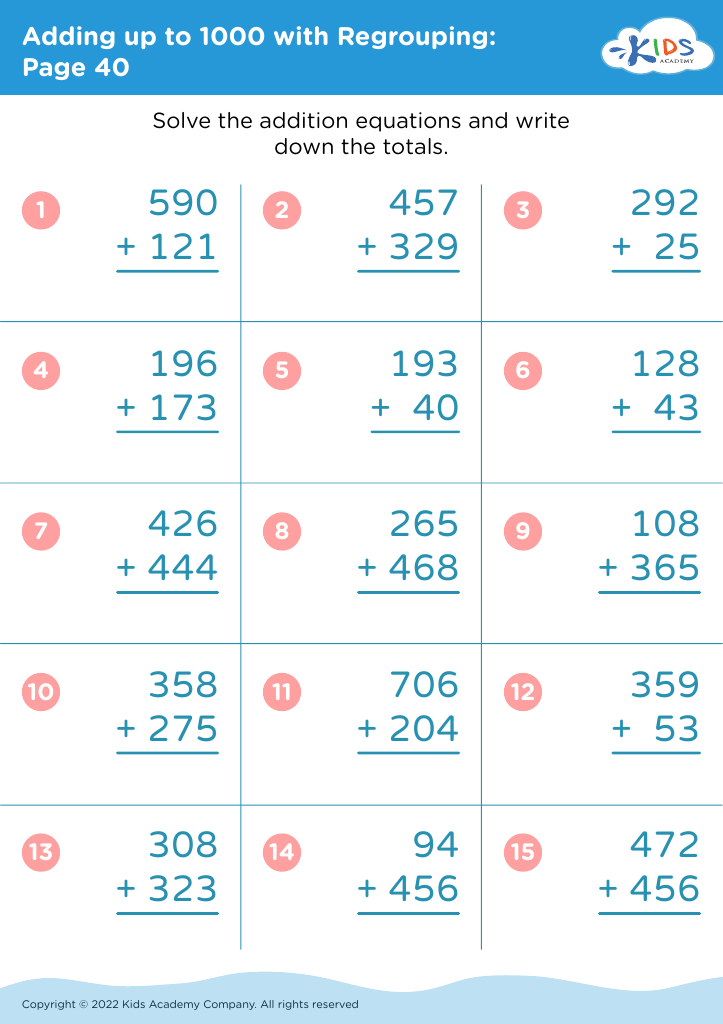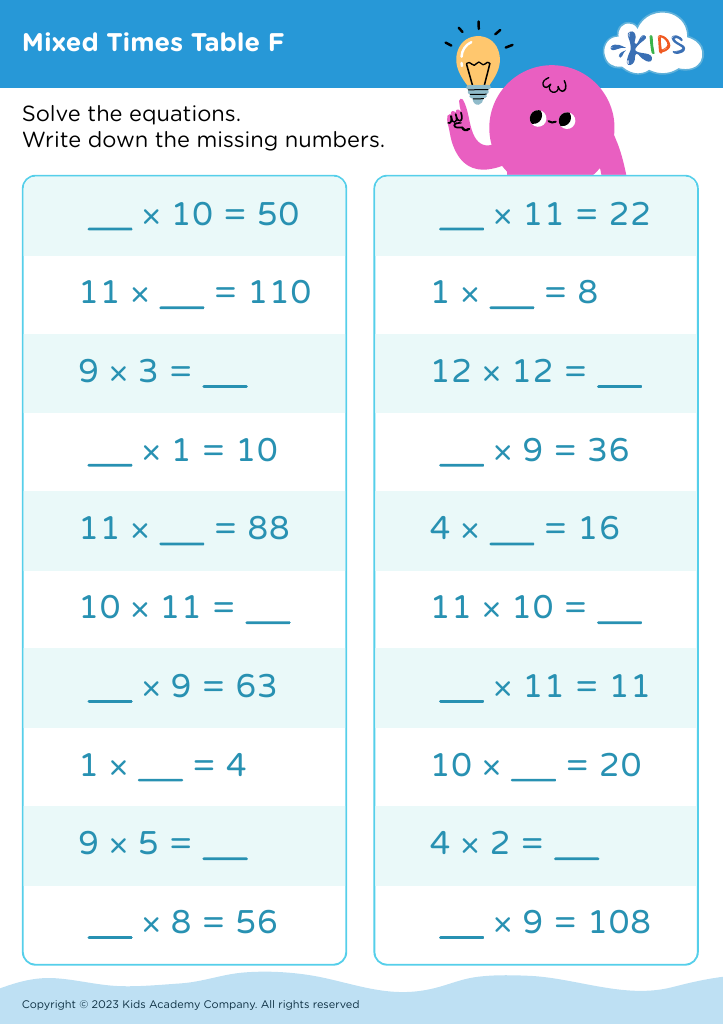Improve mathematical skills Math Worksheets for Ages 5-8
3 filtered results
-
From - To
Unlock your child's mathematical potential with our engaging Math Worksheets designed specifically for ages 5-8! Our worksheets focus on essential skills like addition, subtraction, number recognition, and problem-solving in a fun, interactive way. Each carefully crafted activity promotes critical thinking and enhances foundational math abilities. Whether your child is a beginner or looking to strengthen their existing skills, our resources are perfect for home learning or classroom activities. Printable and easy to use, these worksheets provide a valuable tool to support your child's mathematical journey. Start building confidence in their math skills today! Explore our collection now!
Improving mathematical skills in children aged 5-8 is crucial for several reasons. This stage of development lays the groundwork for future academic success and cognitive abilities. Early math skills, such as counting, number recognition, and basic operations, are fundamental and create a strong foundation for more complex concepts in later grades.
By fostering these skills, parents and teachers can enhance children's problem-solving abilities and critical thinking. Engaging in mathematics at a young age helps develop logical reasoning, which is vital not just in math, but in everyday decision-making.
Moreover, strong mathematical skills can boost a child’s confidence and enthusiasm for learning, creating a positive attitude towards education. As they experience success in math, children are more likely to engage with the subject and develop a lifelong interest.
Incorporating fun, games, and hands-on activities into math learning can make it enjoyable, further encouraging skill development. Finally, supporting children's mathematical growth promotes essential skills needed for various career paths, helping them navigate a world increasingly reliant on science, technology, engineering, and mathematics (STEM). Therefore, parents and teachers play a vital role in nurturing these foundational skills, ultimately shaping children's futures.



















